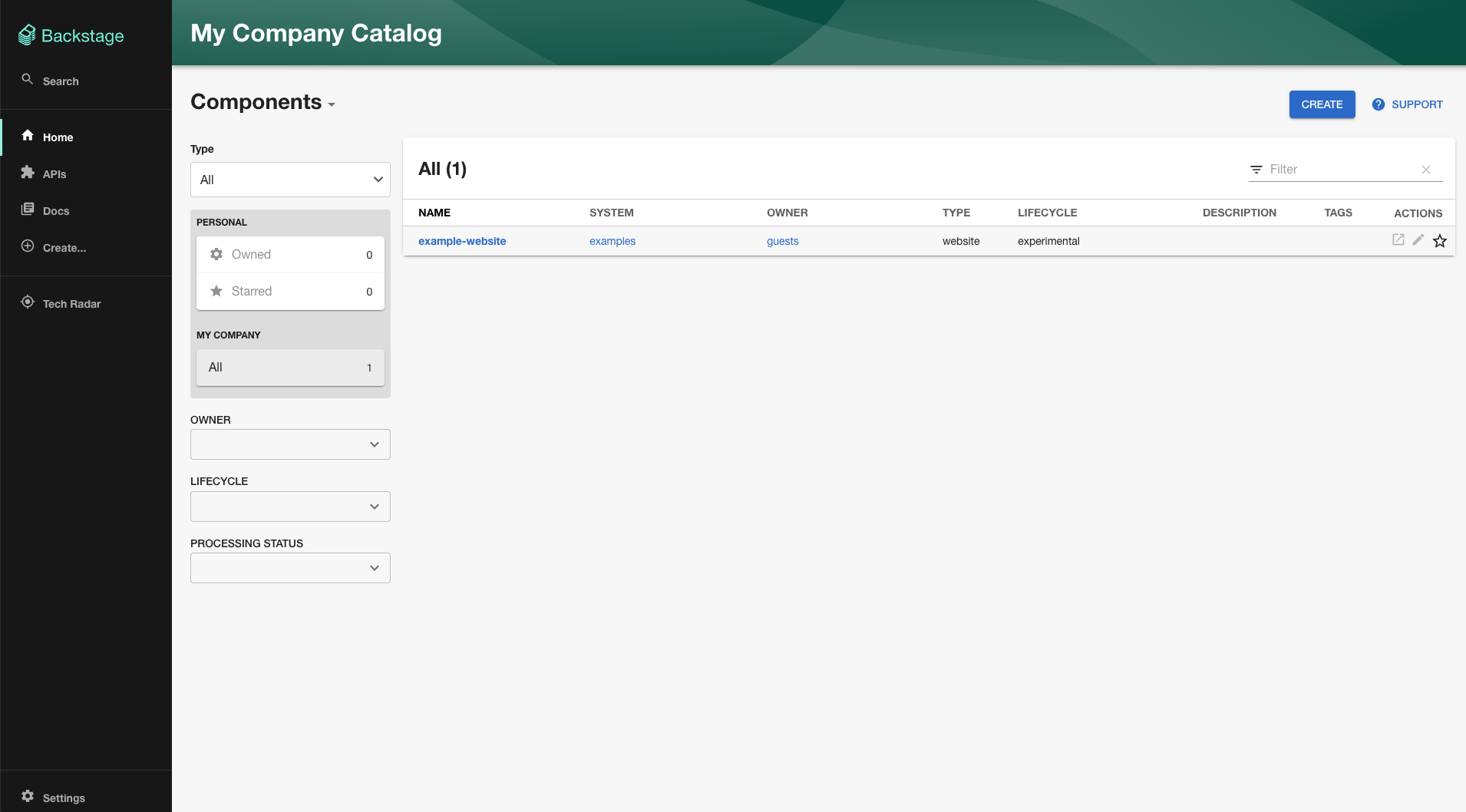Backstage, a tool for building developer portals, is evolving quickly and breaking stuff. Great for them! Not so great if you, like me, are trying to create content for a workshop about what it is and how to use it. The docs have yet to catch up with all the new changes and there are more coming. When things didn't "just work," I turned to the repo's issues and the Discord for help.
This post outlines how I got a local Backstage instance (v1.26.0) set up on Mac (Sonoma 14.4.1) with GitHub OAuth.
I did the basic set-up package per the set-up docs.
npx @backstage/create-app@latest
cd <app-name> && yarn devThis starts up the back and front ends. To stop the processes -- I always forget this so I'm writing it here to remind my future self -- type command-C into the terminal twice. Once for front end, once for back end.
No problem up to this point. I could sign in as a guest and see the demo:

Signing in with GitHub
I wanted to link my GitHub to be able to use the Backstage feature I'm currently researching (creating components from templates). The Backstage docs suggested using GitHub OAuth to sign in and the made it pretty easy to follow.
I chose to have both sign-in UI options on my local instance, so my packages/app/src/App.tsx is slightly different from the one in the docs. Note that the prop is called providers with an S and the value passed is an array, not an object.
// packages/app/src/App.tsx
components: {
SignInPage: props =>
<SignInPage
{...props}
auto
providers={['guest', {
id: 'github-auth-provider',
title: 'GitHub',
message: 'Sign in using GitHub',
apiRef: githubAuthApiRef,
}]} />,
},
This all worked for me - I had both sign-in options available and guest worked, but GitHub didn't.
Unknown auth provider 'github'
Upon clicking the sign in button for GitHub, a pop-up showed me this error in a big JSON object:
{"error":{"name":"NotFoundError","message":"Unknown auth provider 'github'",Deep in this thread, I saw that in the newest version of Backstage, you've got to import an auth module for whatever provider you're using.
// packages/backend/src/index.ts
backend.add(import('@backstage/plugin-auth-backend-module-github-provider')); This information is sort of hidden in the migration guide and I never would have found it myself. Thanks to that line, I was able to see my GitHub icon in the pop-up and try to sign in. But then got a new error.
Login failed; caused by Error: The GitHub provider is not configured to support sign-in
I trawled the closed issues on the Backstage repo and saw that adding resolvers to the app-config.yaml file solved this for me:
// app-config.yaml
auth:
environment: development
providers:
guest: {}
github:
development:
clientId: <CLIENT_ID>
clientSecret: <CLIENT_SECRET>
+ signIn:
+ resolvers:
+ - resolver: emailMatchingUserEntityProfileEmail
+ - resolver: emailLocalPartMatchingUserEntityName
+ - resolver: usernameMatchingUserEntityNameLo and behold, a new error!
Login failed; caused by Error: Login failed, user profile does not contain an email
To solve this,
- I went into my GitHub settings,
- unchecked
Keep my email addresses private, - went to my profile page,
- and chose an email to make public
- then clicked
Update profileat the bottom of the page.
I command-C'd twice, saved and restarted everything, and was able to sign into my GitHub! Hurrah!
Resources
A Backstage upgrade helper was sugggested in another comment and I imagine could be useful as the project continues to evolve.
This issue about 1.24 breaking Github auth was the origin of most of these solutions but this fix did nothing for me because I didn't know where to import getApi from and this one, which suggests changing the authorization callback URL in the OAuth set-up on GitHub, didn't make any difference for me. Both URLs worked fine.